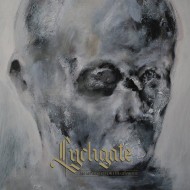 Now, who doesn’t appreciate a massive organ? Lychgate certainly do, as theirs takes centre stage for album number 2, ‘An Antidote for the Glass Pill’.
Now, who doesn’t appreciate a massive organ? Lychgate certainly do, as theirs takes centre stage for album number 2, ‘An Antidote for the Glass Pill’.
While not wanting to sound dismissive and flippant, when a particular instrument plays such a big role in a recording, it should get a mention straight off the bat. Of course, there was a church organ featured on the first Lychgate album, but that was more of a supporting role, rather than a lead part.
Here, it DOMINATES this conceptual work, but does so in a good way. This is no mere exercise in horror cheese (à la Ghost), it’s an integral componant to the baroque nature of the album, and its presence is sure to be appreciated by any fan of avant garde extremity.
Lychgate mainman Vortigern has constructed an album based metaphorically on British philosopher Jeremy Bentham, and his ideas of the Panopticon, an institutional building that allows a single watchman to observe all inmates without them being able to tell whether or not they are being watched. A physical impossibility, but a method of behavioural control via uncertainty. It also draws it’s framework of dystopia from two sources of literature, Yevgeny Zamyatin’s ‘We’ and Stanisław Witkiewicz’s ‘Insatiability’.
Heavy themes, that provide inspiration for the album’s title, and musically translates as 10 tracks of doom-influenced black metal, with full pipe organ backing.
Immersive and unnerving, and quite cinematic in its scope, ‘An Antidote for the Glass Pill’ is best “enjoyed” with eyes closed, and mind open.
The ominous tolling bells and dramatic organ and keyboard swirls of ‘Unto My Tempest’ set the scene, while ‘Davamesque B2’ brings in the vocals from Esoteric’s Greg Chandler, which veer from rasp and scream to lower intonation throughout the album. The drumming is understated for the most part, but no less enthralling, and the guitars are not overly flashy, serving as an accompaniment to the majestic organ flurries. In fact, it’s during the stunning ‘Letter XIX’ that you realise how tight the playing is on this recording, as tempos shift from blasting to military march. Hell, on ‘The Illness Named Imagination’, we’re even into waltz time. The death chugs of ‘An Acousmatic Guardian’ prove pretty muscular, and ‘My Fate to Burn Forever’ shows a proggy side, that at times sounds a little bit like Italian soundtrack supremos Goblin, which is no bad thing.
The whole album is unified by some atmospheric soundscapes that are capable of sending shivers down the spine, and adds to the drama and tension of this rather unique-sounding record.
‘An Antidote for the Glass Pill’ is a heady brew for sure, but one that stridently deserves your time, respect, and appreciation.
(8.5/10 Stuart Carroll)

Leave a Reply